 |
| Zadie Smith |
2023
Other Books Highlights From This Year I
Throughout the year, Vulture maintained a “Best Books of the Year (So Far)” list. Many of those selections appear above in our top-ten. Below, the rest of the books that stood out to them this year, presented in order of release date.
Tremor, by Teju Cole
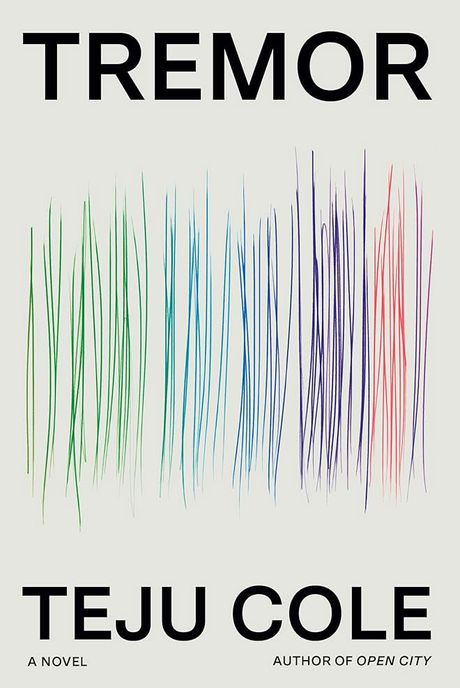
Teju Cole’s visual medium is photography, and lately, his written medium is the essay. With Tremor, he returns to the novel after 12 years, threading his tendency toward analysis and explication with scenes from the life of the protagonist, Tunde, who, like Cole, is a Harvard professor. At the start of the book, he is separated — hopefully, not for good — from his wife, Sadako. He is also considering the ethics of the roles he inhabits: lecturer, workshop leader, photographer, traveler, and viewer. How can one make or even behold art without assuming a dominant position? Cole considers this question alongside close readings of pastel drawings made by “the most prolific serial killer in American history”; the painting of a lesser-known Flemish master, Landscape With Burning City; Ingmar Bergman’s film Winter Light; the garden Sadako carefully maintains; and Tunde’s own photographs capturing someone else’s “private property.” Fans of other essayistic novels, including J.M. Coetzee’s Elizabeth Costello and Rachel Cusk’s Outline trilogy, will appreciate Cole’s vision. —Maddie Crum
People Collide, by Isle McElroy
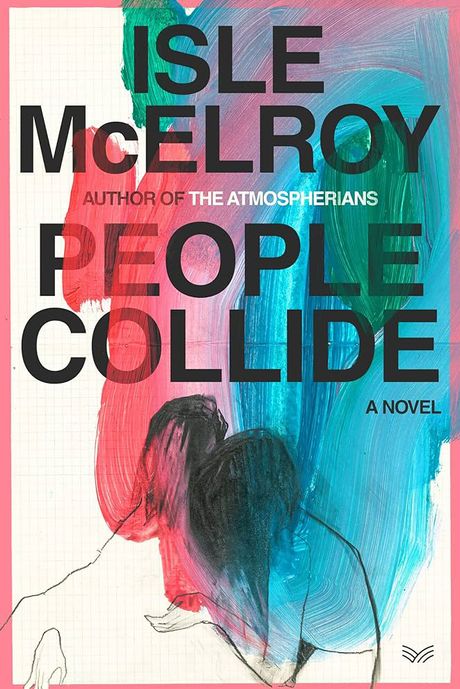
Isle McElroy’s 2021 debut, The Atmospherians, established them as a daring new voice in fiction; their spectacular follow-up makes it clear that their voice can’t be pinned down. People Collide, which follows a man who suddenly finds himself in his wife’s body, shares the speculative genre, but where The Atmospherians used absurdity to skewer toxic masculinity, People Collide — though not devoid of humor — brings real gravity to profound, ultimately philosophical ruminations on bodies, gender, alienation, and love. Their exploration of the interplay among power, sexuality, and subversion extends beyond the body-swap, a narrative device that, in less masterful hands, might be a gimmick. The narrator, Eli, tells us immediately that his wife — the more successful of the two and whose job has brought them to Bulgaria — is courageous where he is not; their gender roles are already upended when their bodies switch. How do our expectations of ourselves bleed into our understanding of others? What are the limitations of love, and how are we imposing them? McElroy provokes questions that will linger in your mind long after you’ve finished the book.
Note: Isle McElroy is a contributor to this list but was not involved in the selection of People Collide.
The Fraud, by Zadie Smith
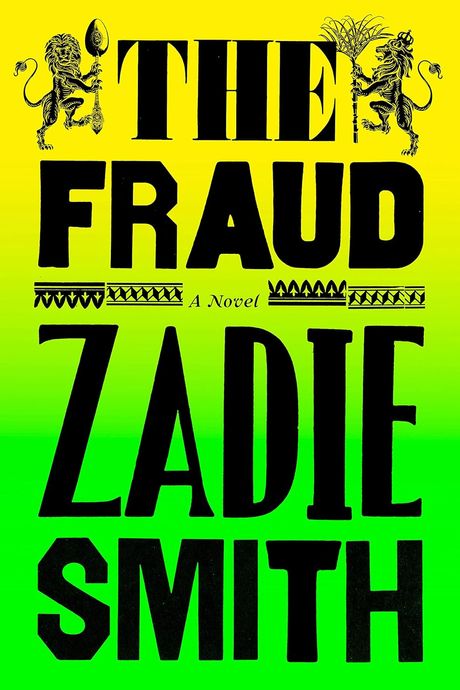
Eliza Touchet has been working as a maid for William Harrison Ainsworth, a novelist whose popularity is in serious decline, for decades. William, her cousin by marriage, briefly outsold Charles Dickens, but his real talent is in his naïve sociability — even with writers who secretly, and sometimes openly, laugh at his incredibly tedious books. (In one of the novel’s funniest bits, Smith reprints a chunk of text from a real-life Ainsworth novel, an unreadable nest of description.) Eliza doesn’t have much respect for him either — she’s too smart for most of the people around her, especially William’s new wife, who’s obsessed with a trial involving a poor man who claims to be the lost heir to a massive fortune. But Eliza eventually gets involved in the media circus around the case, striking up an uneasy acquaintanceship with its star witness, Andrew Bogle, a formerly enslaved man. Zadie Smith has said her new novel is an attempt to really understand who the Victorians were. In The Fraud, they’re as diverse, strange, and hopeful as any of us. —Emma Alpern
Wednesday’s Child, by Yiyun Li
In the title story of her early collection, “Gold Boy, Emerald Girl,” Yiyun Li brought together two characters who hadn’t realized they needed each other; by chance or fate, they clicked into a simple, unromantic intimacy, not as a family but as a more original and less painful arrangement. Li’s career has spanned several mediums since then: a memoir of her life as a reader and several novels, including last year’s PEN/Faulkner-winning The Book of Goose. But these moments of genuine and surprising closeness — between estranged friends, between 19th-century writers and their contemporary readers, between care workers and new mothers, between mothers and their tragically lost children — appear throughout. In her latest book’s titular story, Wednesday’s Child, the narrator wonders whether she shouldn’t have introduced her daughter to a melancholic writer so soon. In “A Sheltered Woman,” postpartum difficulties are narrated through the eyes of a childless nurse. In “Let Women Doubt,” a woman takes a trip to Paris that she’d bought as a gift for her brother, who overdosed. “Overdose,” she considers. “One of the quickest ways to turn a young life into a data point.” One of the most affecting ways to reverse that harm: to tell a story. —M.C.
 |
| Ben Lerner |
The Lights, by Ben Lerner
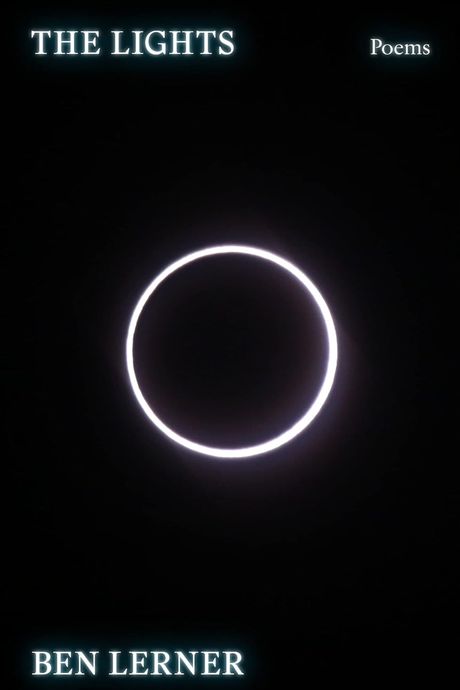
Ben Lerner’s return to poetry begins with an “Index of Themes” both intimate and grand, including “poems / about stars and / how they are erased by street / lights,” and “Poems about you, prose / poems.” In the decade and some since he last published a book of poems, he’s written, among other projects, three increasingly personal novels; his most recent, The Topeka School, draws from his high-school debate years and his parents’ study of psychology, of babble, of talking without really speaking. Although it sometimes includes confessional passages, it isn’t only a diaristic story of boyhood; Lerner searches his personal life for political themes, and seems uninterested in, or incapable of, relating scenes without that extra, analytical layer. The same spirit animates The Lights: In “The Rose,” a narrator much like Ben Lerner shares an anecdote about his great-grandmother, who suspects that the staff in her assisted-living facility are sneakily altering her paintings. To quiet her worries, his cousin suggests that they must at least be handling the work delicately: “No smudges on the glass.” It’s a funny family memory, but also, Lerner writes, “an itinerary for art criticism, during a crisis of long-term care.” “The Rose,” and the entire collection, reaches toward authentic, unfiltered, even unanalyzed feeling. Its narrator begins by considering “the advent of the credit economy” and whether folk music ought to reckon with our knowledge that “stars don’t twinkle.” But in the end, after happening upon a stranger’s blunt note detailing a fight with a partner, he looks up in tears. “Folk music is for all of us,” he writes. —M.C.
The September House, by Carissa Orlando
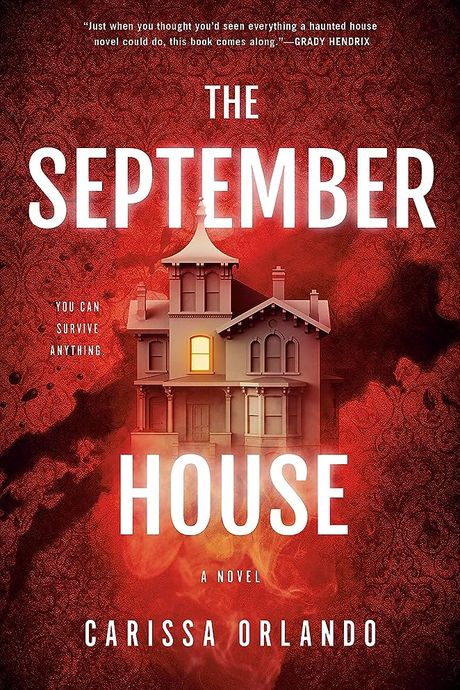
Margaret’s house is, to put it mildly, extremely haunted, but she has learned to live with it. She coexists nicely with the ghostly maid who brews her tea, dodges the slightly feral spectral boy who likes to bite her, and has a priest come in monthly to bless the house. She also never, ever, ever goes into the basement. The haunting gets exponentially worse every September — think bleeding walls, agitated spirits, and persistent moaning — and when her husband can no longer face another autumn in the house, he disappears without a word. But after Margaret’s headstrong daughter, Katherine, concerned about her absent father, insists on coming to stay just as September begins, all of Margaret’s carefully constructed coping mechanisms threaten to come apart at the seams. Margaret is a delightfully well drawn protagonist, sturdy, unflappable, and often dryly funny, but as the narrative unfurls, we learn that the reasons for her strictly regimented behavior are neither simple nor pleasant. I have to admit, I had a moment of doubt about whether Orlando could stick the landing on this book, but I’m thrilled to say she did, and beautifully at that. The September House is a surprising, engaging debut that unspools into a thoughtful psychological examination of domestic violence. —Emily Hughes
Terrace Story, by Hilary Leichter
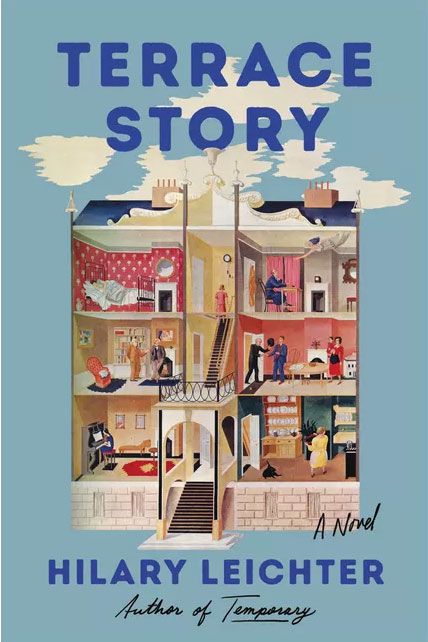
The follow-up to Hilary Leichter’s stunningly original debut, Temporary, is a novel as structurally imaginative as it is emotionally expansive. Stephanie can make objects around her grow as she wishes — she can conjure a terrace for her friends, a young couple with a baby and a tight budget, in their tiny apartment. Still, Stephanie is lonely, and the physical world bends to mirror the dimensions of her “craving, a longing so deep inside her that it was outside her body.” In the book’s four sections, each named for an architectural feature, what may at first feel like distinct stories begin to thread together into family lineages across the expanse of time. Yes, this is largely a book about space, from real estate to the distance that can settle in between intimate partners, but it’s also an unsettling meditation on proportion, conservation, and what is lost to get what we want. Recurring motifs and phrases echo throughout; with each encounter, they feel at once familiar and new, like realizing mid-dream that you’ve dreamed about this place before. —Jasmine Vojdani
Hangman, by Maya Binyam
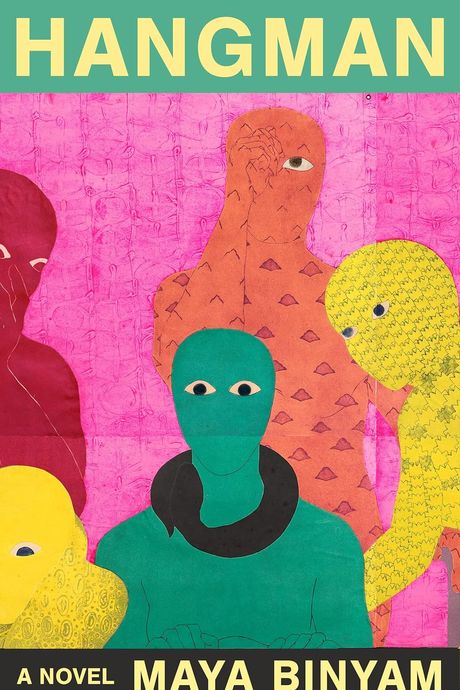
Most immigrant novels of recent vintage share a single plot: a bright and hopeful person from the global south travels to a rich country in the global north and discovers that reality does not resemble their dreams. Maya Binyam’s Hangman immediately upends expectations by moving in the opposite direction — away from the adopted country and back toward the abandoned one. Hangman upends expectations in other ways as well — Binyam withholds details that feature prominently in most immigrant tales, like the name of the country her protagonist comes from and the name of the country where he lives. Binyam’s tale, instead, foregrounds absence, and invites us to fill in the gaps that recur throughout the novel. In so doing, she is inviting us to question our expectations about these kinds of stories, and to contemplate the possibility that the varied lives of immigrants the world over cannot be rendered effectively in narrative cliches. This is a bold, courageous, and resonant book. —Tope Folarin

No comments:
Post a Comment